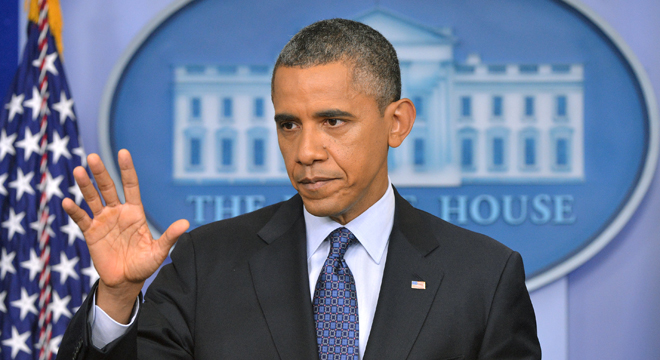For about a month now, guardians of conventional wisdom have read just about every piece of political news, significant and trivial, as a disaster for the Obama campaign. Now along comes new polling data that suggest President Obama has actually widened his margins over Mitt Romney in key swing states.
What’s the obvious conclusion to draw from this? According to Mark Halperin it’s that “New polling suggests @BarackObama more than survived his bad stretch.”
I don’t think it’s over-interpreting the polls to say this interpretation of facts is completely, obviously backward. But of course we’re unlikely to see political analysts who bought into the “Obama’s bad month” meme admit in retrospect that they were wrong, and that campaign professionals know a bit more about what matters in campaigns than pundits do. Instead the notion that Obama had a terrible month will stand unquestioned, and his numbers will be assumed to have improved despite all the pitfalls.
A big part of the story here is confirmation bias — it follows that in a weak economy, the President should be polling poorly, and it’s hard not to filter out information that contradicts the assumption. So everything from bad jobs numbers to the President getting shouted at in the Rose Garden becomes evidence of a campaign in disarray, while the low unemployment rate in Ohio, and Obama’s new immigration policy, and well-placed stories about Mitt Romney’s business record get shorter shrift. Then on top of that, campaign communicators kick so much dust up at the media it can be genuinely difficult sometimes to pluck what matters and what’s really new out of the cloud.
That’s not to say there’s a correct counter narrative — shoehorning noisy polling data into narratives invented by people who get paid to tell stories is always a bad idea. It’d be just as wrong to read today’s polls as evidence of Obama’s inexorable rise, and weave a new narrative about Romney’s sinking chances.
But it also ought to be the case that if you’ve badly misread the mood of the electorate or the importance of certain events, you go back and rethink the underlying assumption.
This kind of thing happens every election cycle. Today’s data just crystallizes the phenomenon nicely.






